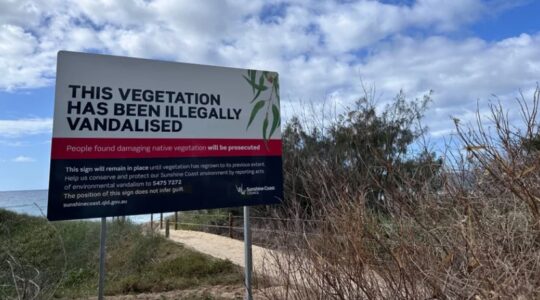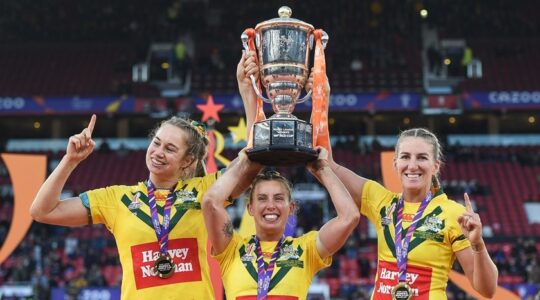Young people are being urged to re-embrace physical exercise and real social interaction to avoid losing motor skills and the ability to positively interact with others.
Police Citizens Youth Club (PCYC) Chief Executive Officer Phil Schultz said children and young adults needed variety in their lives. Their obsession with digital devices and screen-based socialisation risked undermining their broader life skills.
“A lot of young people are missing out on exercise and positive face-to-face engagement with others and that impacts their motor skills and coordination, their learning ability and often their behaviour,” Mr Schultz said.
“We also see the importance of this generation having something real and interesting to do, feeling like they truly belong somewhere and having positive role models.”
This month, the PCYC is celebrating its 75th anniversary and Mr Schultz believes the services provided by the clubs in partnership with the Queensland Police Service are needed more than ever.
The PCYC is not directly funded by government so it relies on other income sources, including gym membership for adults, to continue its work.
To that end, this month the PCYC is using its 75th birthday celebrations to launch a new state-based lottery to help boost its fund-raising efforts. The lottery will have a distinctive Queensland look-and-feel, and tickets will be available in clubs in online.
While the charity has traditionally targeted its programs mainly at the 12-24 age group, it is now extending its focus to younger age groups in the hope that more children can be set on a positive life path through earlier interaction.
Part of this push is the new Cadet Club, also launched this week, which aims to engage with children from a younger age to ensure they have strong community and interpersonal connections.
“The Cadet Club will have a strong emphasis on play, respect, and creating a safe space and sense of belonging,” he said. “It encourages children to adopt the elements of Learn, Empower, Achieve and Dream as the foundation of their development.”
The PCYC, which started in a humble shed at Lang Park (now Suncorp Stadium), delivers dozens of support programs at 56 clubs across Queensland. Nearly 100,000 Queenslanders are members, including 50,000 children, many of whom live in disadvantaged households.
The PCYC programs include coordinating volunteers to help teenagers without access to family help to reach the 100 hours of driving they need to secure a licence, renowned gymnastics, dance. boxing and martial arts programs, and leadership development.
They also provide out-of-hours care and various services aimed at supporting domestic violence victims. The organisation has a strong focus on supporting young people in indigenous communities, where the PCYC has long been a vital component of the social infrastructure.
Mr Schultz said one of his key observations in leading the PCYC was the power of positive role models in turning lives around.
“Lots of young people simply don’t have these role models, or even anyone to talk to about things that are on their mind,” he said. “I’ve seen how early intervention and creating the right positive diversions can change the path that someone is on and fundamentally change their future.”
“There is a lot of attention on youth crime but I see every day the opportunity to alter these negative pathways when young people have access to the right experiences.”
Mr Schultz said the simple function of providing a safe place and giving teenagers something to do at night could make a massive difference to life outcomes.
“This group gets bored very easily and if they don’t have a diversion or something to keep them active, they can end up in the street looking for trouble,” he said. “They have so much energy to burn off and we need to ensure they burn it off during the right things.
“At PCYC they can come in and not be judged. Regardless of their background, they get treated like everybody else. They are seen and they are valued.
“A lot of the kids we work with don’t have the social skills to deal with other people but after a while they come out of their shells and we watch them come alive. They are often amazed at how quickly they make friends and they often express surprise at how nice people can be.”
The clubs also provide a safe zone for young people to interact with police. Often young people with troubled backgrounds have only dealt with police in negative circumstances. Mr Schultz says the PCYC helps to break down the barriers and help this group see police as real people ultimately trying to help them.
Similarly, the clubs can provide a soft zone for domestic violence victims to form informal relationships with police officers as a way of seeking help and advice.
Of course, the PCYC is not just for troubled youth or “naughty kids”. Most of the kids who use the facilities come from stable homes.
Whole generations across Queensland have fond memories of learning gymnastics, boxing and other active sports in the PCYC halls and the adult gym membership has become an important revenue source for the clubs.
PCYC facilities have also become vital community refuges during natural disasters and during the COVID-19 pandemic they were often the only public facility still open in indigenous communities.
Mr Schultz said he hoped the Queensland community would support the new lottery to help ensure that the PCYC was sustainable over the long term.
“We don’t get government funding for our core programs, and we can only keep them running if we can raise sufficient funds,” he said.
“There is still huge demand for what we do. Any new program will literally fill overnight. More funds mean more youth workers, more early intervention to support positive lives and better community facilities. All of that helps us to be a stronger, more resilience community.”








